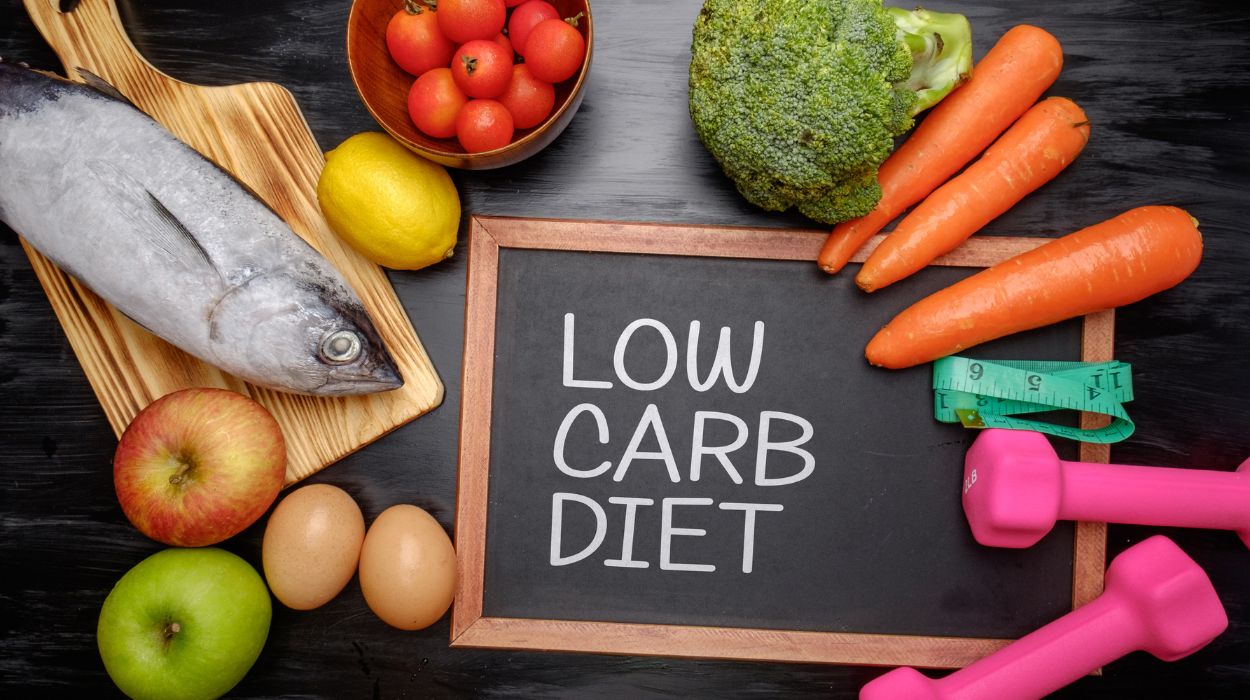You may have seen information related to both low carb vs keto diets during a search for weight loss plans or another dieting goal. These terms can be confusing. Ketogenic diets could accurately be described as very low-carb diets, so what are the differences?
Low Carb Vs. Keto
Low-carb diets vary in approach and can help people accomplish different goals. A keto diet is a more restrictive form of a low-carb diet. These restrictions provide an opportunity for more rapid weight loss, but can also make it more difficult to adhere to long-term. Restrictions may also be associated with health risks, so consulting with your doctor before starting a diet is recommended.
We will discuss the differences between the diets, risks and benefits to consider, and who may be better suited for each approach.
Low Carb Diet Vs. Keto: The Differences
Weight Loss Goals
Choosing a low-carb eating plan to help you lose weight can be defined by the speed at which you would like to shed pounds. Sometimes these are short-term approaches as well, such as a meal plan for weight loss.
- Weight maintenance – low-carb diet. Daily carb intake of 100 – 150 grams.
- Steady weight loss over time – low-carb diet. Carbohydrate intake of 100 grams.
- Lose weight quickly – very low-carb diets such as keto diet. Carb intake is 50 grams.
More aggressive approaches do require more careful planning, consideration of potential nutrient deficits and a potential for higher saturated fat content which may affect cardiovascular risk. Working with a healthcare professional can help ensure you are maintaining a healthy balance.
Fat Content
A standard ketogenic diet is defined as 10% of net carbs from carbohydrates, 20% from protein, and 70% from fat. A typical low-carb diet does not set predefined targets for fat intake. When considering low-carb vs. keto it’s important to note that this high-fat content should be carefully planned to limit saturated fats and include more healthy fats when possible to help limit any impact on the risk of heart disease.
What Is A Low Carb Diet?

Low-carb diets are designed to limit carbohydrate intake by tracking foods that contain natural or refined simple and complex carbohydrates.
- Refined simple carbohydrates – sugary foods, processed foods.
- Natural simple – fruits (fructose), milk (lactose).
- Refined complex – Flour, processed foods.
- Natural complex – whole grains, beans, lentils, starchy vegetables.
Some popular examples of low-carbohydrate diets include the Atkins diet, the low-carb Paleo diet, the low-carb Mediterranean diet, and the keto diet. A common theme is the removal of refined carbohydrates from sugary drinks and processed foods. Encourage the consumption of whole foods, but place limits on the daily intake of natural sources of carbs.
What Is A Keto Diet?

A ketogenic diet is a very low-carb diet with daily carbs limited to 50 grams or less. There are variations but generally, it is also considered a high-fat diet due to a common target of 70% of daily calorie intake coming from fats. A ketogenic diet aims to produce ketosis, shifting your body’s energy consumption from glucose to ketone bodies. This is accomplished by breaking down body fat storage or inducing a fat-burning mode. When people ask, “Do carbs make you fat?” you could certainly say that they don’t help you burn it.
The keto diet has been a topic of increased research in recent years and has generated some interesting results that are worthy of further study. It seems to provide health benefits for neurodegenerative diseases (such as Alzheimer’s and Parkinson’s) and healthcare professionals have been using it to treat epilepsy for over 100 years. Caution should be exercised for patients who are diabetic due to increased risks of low blood sugar and ketoacidosis.
Keto Vs Low-carb: Which Is Better For You?
There are a variety of factors that can impact this decision. Thinking about these categories will be beneficial for comparing low-carb diets and keto diets:
Weight Loss Goals
The Keto diet provides more rapid weight loss; the low-carb diet provides weight maintenance or more stable, steady weight loss over time.
Diabetic Patients
The keto diet increases the risks of hypoglycemia (low blood sugar) and diabetic ketoacidosis.[1] It also impacts insulin levels and insulin sensitivity. Consider using a keto diet only with the assistance of a healthcare provider. Restricting carbs is commonly used to help improve blood glucose control but it can be dangerous to limit them too much.
Patients With A History Of Cardiovascular Disease Or Risk Factors
Studies are mixed[2] when considering the potential impact of the keto diet on the risks of heart attack and stroke.[3] It may be likely that the choice of specific foods within the guidelines has an impact here. Limiting saturated fats may help prevent this risk from becoming more problematic, but it is important to follow up with a healthcare provider to make sure you are aware of your risks and current status of labs such as LDL cholesterol (low-density lipoprotein, or “bad cholesterol”).
Convenience & Cost
One of the reasons carbohydrates are a staple of a Western diet is availability and relatively low cost for calorie content. Those on low-carb or keto diets experience enhanced satiety, reducing hunger, but relying on whole foods may increase grocery expenses.
There are some services available to make the process simpler. Finding the best low-carb meal delivery service for you could add convenience and make grocery shopping less of a headache. Finding variety in options for snacking can be difficult in more restrictive diets as well, but using specially formulated products such as the best Keto protein powders can help.
Low-carb diets are often less restrictive and can make meal planning, finding budget-friendly foods, and long-term adherence easier.
Conclusion
The keto diet is more restrictive may be more difficult to adhere to long-term for many people, and requires careful planning and monitoring to ensure a healthy balance is maintained. While it is not for everyone, some health benefits have been established, and further studies are being conducted.
For some, a sustainable approach might involve initially reducing carb intake and emphasizing whole foods in the diet. Doing this while limiting food with added sugar and processed food can make a significant impact on your health.
Though rapid weight loss is tempting, a gradual pace of 1-2 pounds per week is advised for better sustainability. Who wants to lose weight just to put it back on? Making incremental changes can help you build a lifetime of improved eating habits.
Frequently Asked Questions
Many patients with prediabetes may be less likely to develop low blood sugar (hypoglycemia) compared with diabetics trying the keto diet. Despite the potentially lower risk of side effects, it is still important to review the diet with your doctor before starting.
Many individuals report a set of symptoms known as “keto flu” as the body switches from glucose to ketone bodies as a primary fuel source. These symptoms include headache, nausea, constipation, and mental fog. Keto flu symptoms often resolve within several days.
Staying hydrated is the best way to avoid or resolve these initial symptoms.
 Expert's opinion
Expert's opinion
